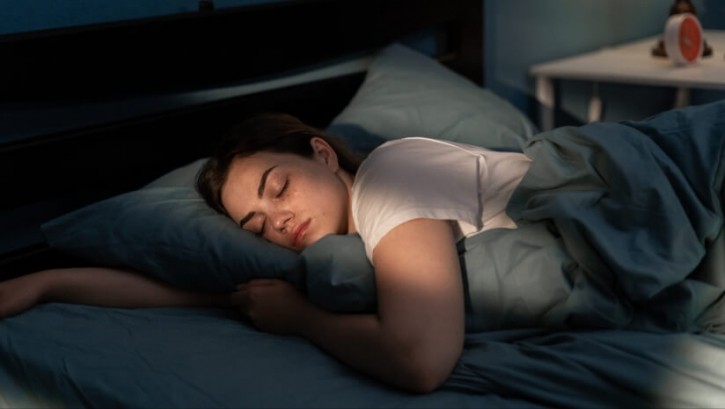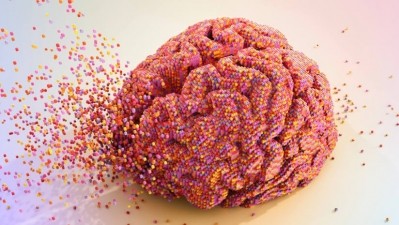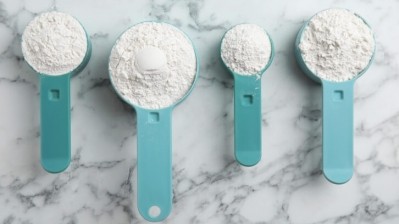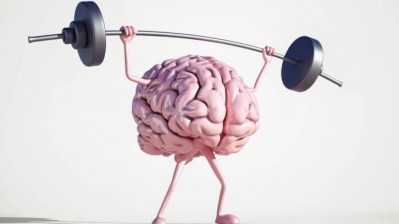Coupling creatine and resistance training may improve sleep in menstruating women

Writing in the journal Nutrients, researchers from the University of Idaho and University of Regina investigated effects on sleep quality and quantity in addition to impact on body composition and muscle strength.
“It was hypothesized that CR supplementation and resistance training would improve sleep quality more than resistance training alone,” they wrote. “Secondarily, it was hypothesized that CR supplementation would augment the gains in LST [lean soft tissue] and strength and decrease FM [fat mass] more than those on placebo (PLA).”
Considering creatine as sleep aid in women
The study highlighted that women historically experience more sleep disturbances and overall poorer sleep than men and that the female population has traditionally been excluded from research.
“Despite multiple physiological mechanisms to replenish CR stores, female storage is ~70–80% lower compared to males,” the researchers wrote. “Further, females often consume less dietary CR compared to males, likely due to lower meat consumption. Thus, CR supplementation may be particularly useful given lower endogenous stores and/or exogenous consumption of CR which may contribute to overall female health.”
Studies are beginning to explore creatine’s ability to cross the blood-brain barrier to increase brain creatine levels as well as its potential to support brain health and function, such as cognitive processes related to sleep deprivation.
In younger females, the researchers suggested that menstrual cycle hormone fluctuations may be at play, impacting circadian rhythm. They also noted evidence of the beneficial effects of creatine on resistance training, which in turn is linked to improved sleep quality and quantity.
Study details
The double-blind, randomized controlled trial evaluated the effects of six weeks of consecutive creatine supplementation in a group of 24 non-resistance-trained women between the ages of 18 and 24 compared to a group taking a placebo.
The supplement group consumed 5 g of Creapure creatine monohydrate manufactured by German company AlzChem mixed with an equal measure of maldodextrin in either pink lemonade, raspberry lemonade or fruit punch Crystal Light.
Participants completed an at-home resistance training program twice a week. Pre- and post-testing assessed body composition, Pittsburgh Sleep Quality Index (PSQI), dietary intake and muscular strength. Sleep was monitored nightly using an Ōura ring.
“Unique and important results of this study included greater sleep duration (quantity) the night following resistance training exercise bouts with CR supplementation compared to resistance training exercise without CR,” the researchers reported. “These results are consistent with previous research among sleep-deprived participants, which has shown restorative effects of CR supplementation with and without exercise on cognitive performance and mood improvement.”
Current evidence suggests that creatine supplementation may have greater effects on the brain under stressful conditions such as exercise and sleep deprivation and that CR may decrease the effects of sleep deprivation.
“In the present study, it is possible that resistance training provided a great enough stimulus to stress the body and therefore enhance the effects of CR supplementation,” the researchers added. “While the precise mechanism for this change is unknown, CR has been shown to decrease oxidative stress and inflammation and improve brain bioenergetics, which may have favorable effects on sleep.”
For the secondary outcomes, there were no significant changes in relative lean soft tissue fat mass observed, and the researchers noted both groups significantly improved their strength scores over time, attributed to improved neural function.
In the future, the study suggested that sleep and creatine research employ creatine loading phases and experiment with higher dosages and supplementation both alone and in combination with varying types of exercise on cognitive performance, mood and sleep duration using daily measurement devices.
“There is a strong need to include women in research, and the inability to determine menstrual cycle phase should not necessarily deter researchers from including female participants,” the researchers added. “Additionally, studies should investigate a similar intervention using females on hormonal birth control to explore the potential interaction of hormonal birth control and CR on sleep following exercise.”
Source: Nutrients
doi: 10.3390/nu16162772
“Creatine Improves Total Sleep Duration Following Resistance Training Days versus Non-Resistance Training Days among Naturally Menstruating Females”
Authors: Ariel J. Aguiar Bonfim Cruz et al.















